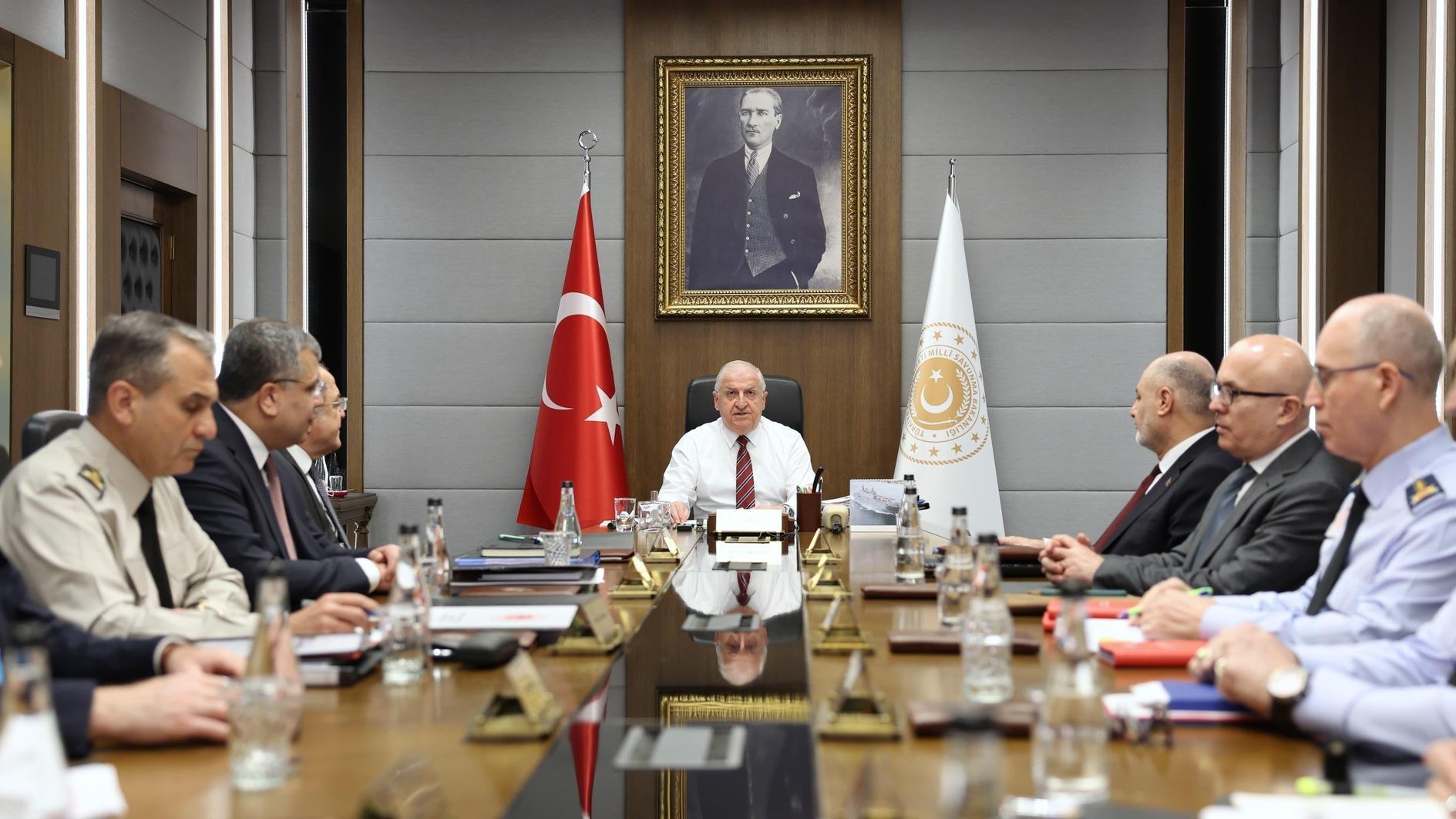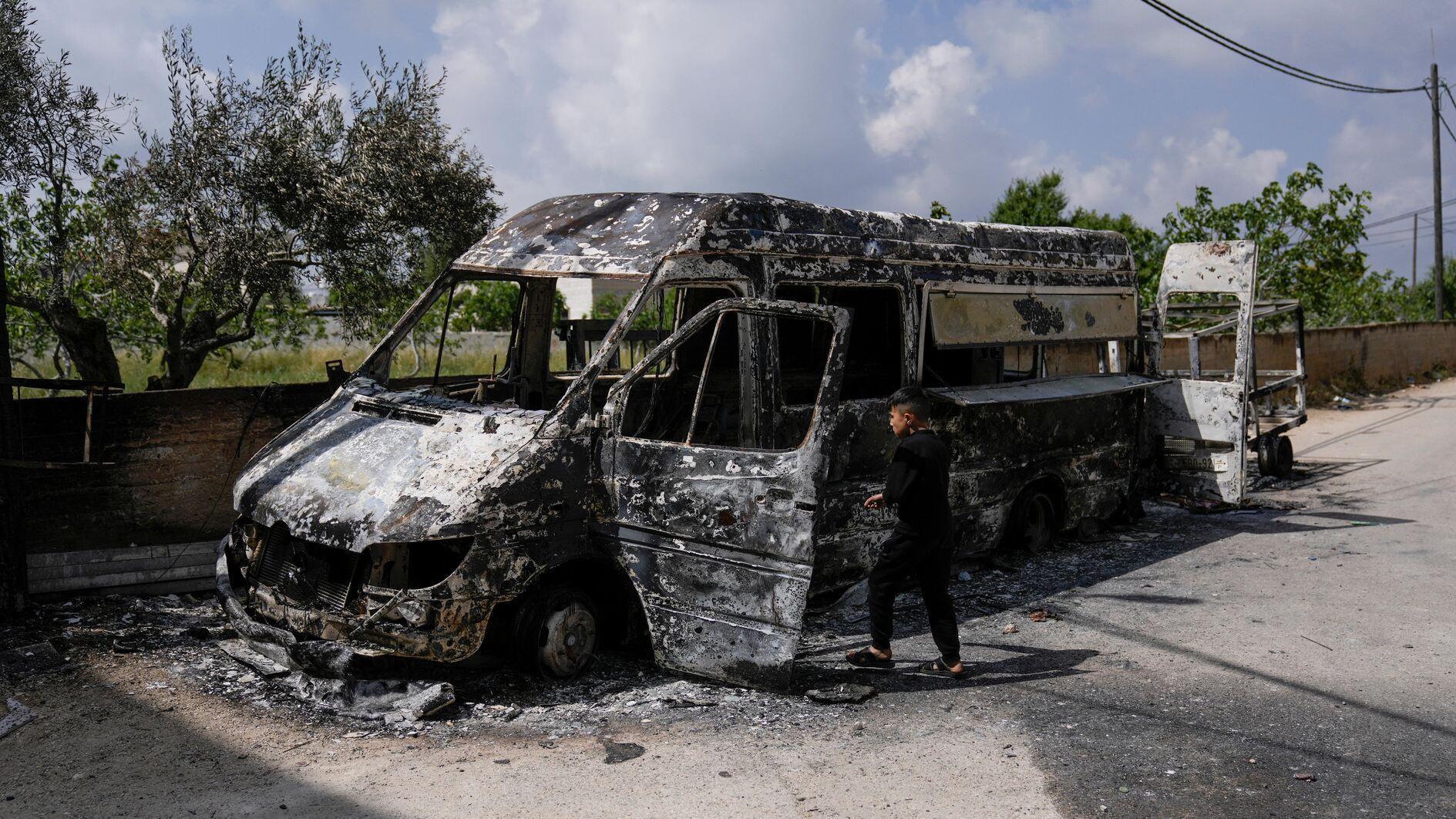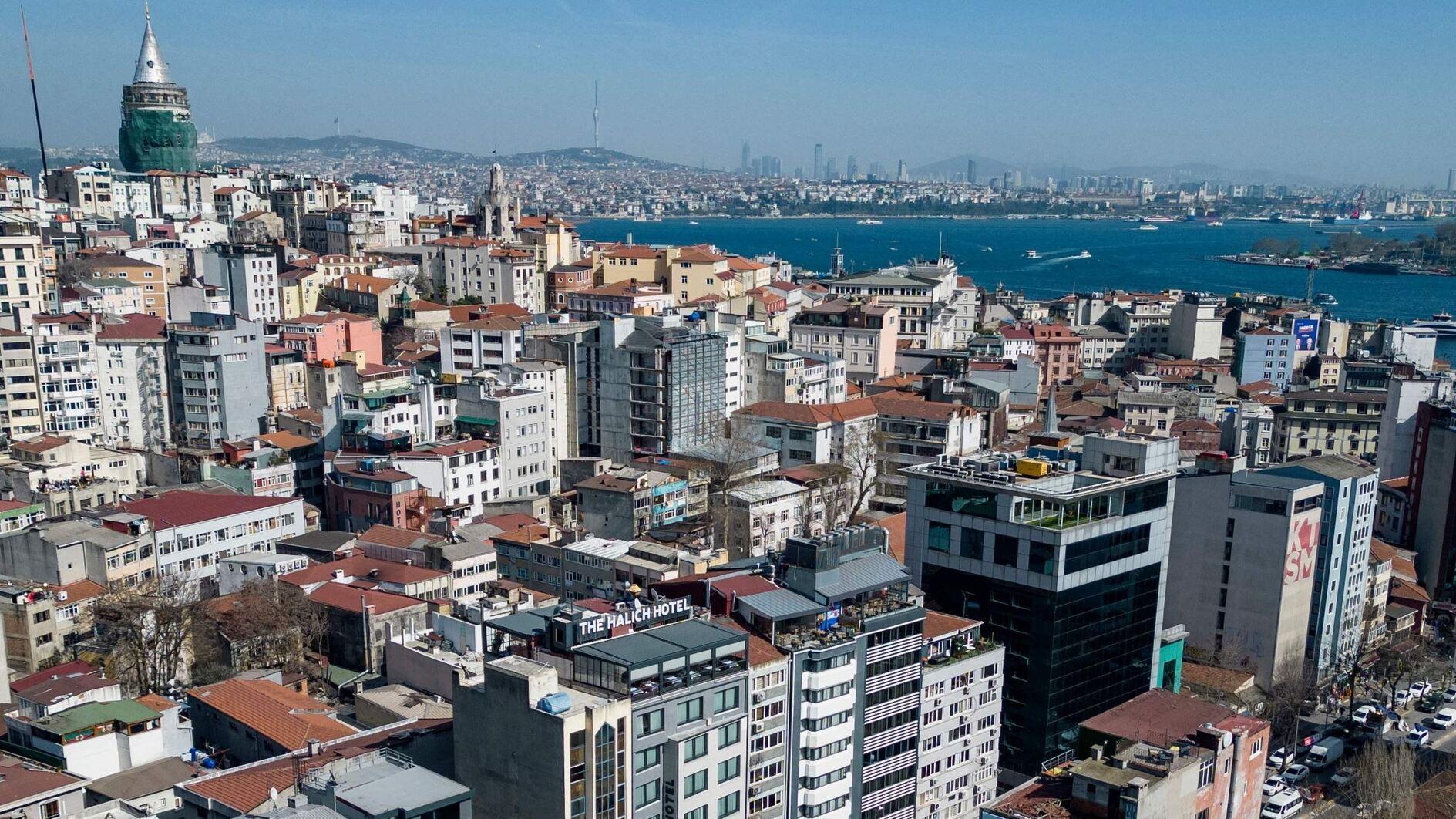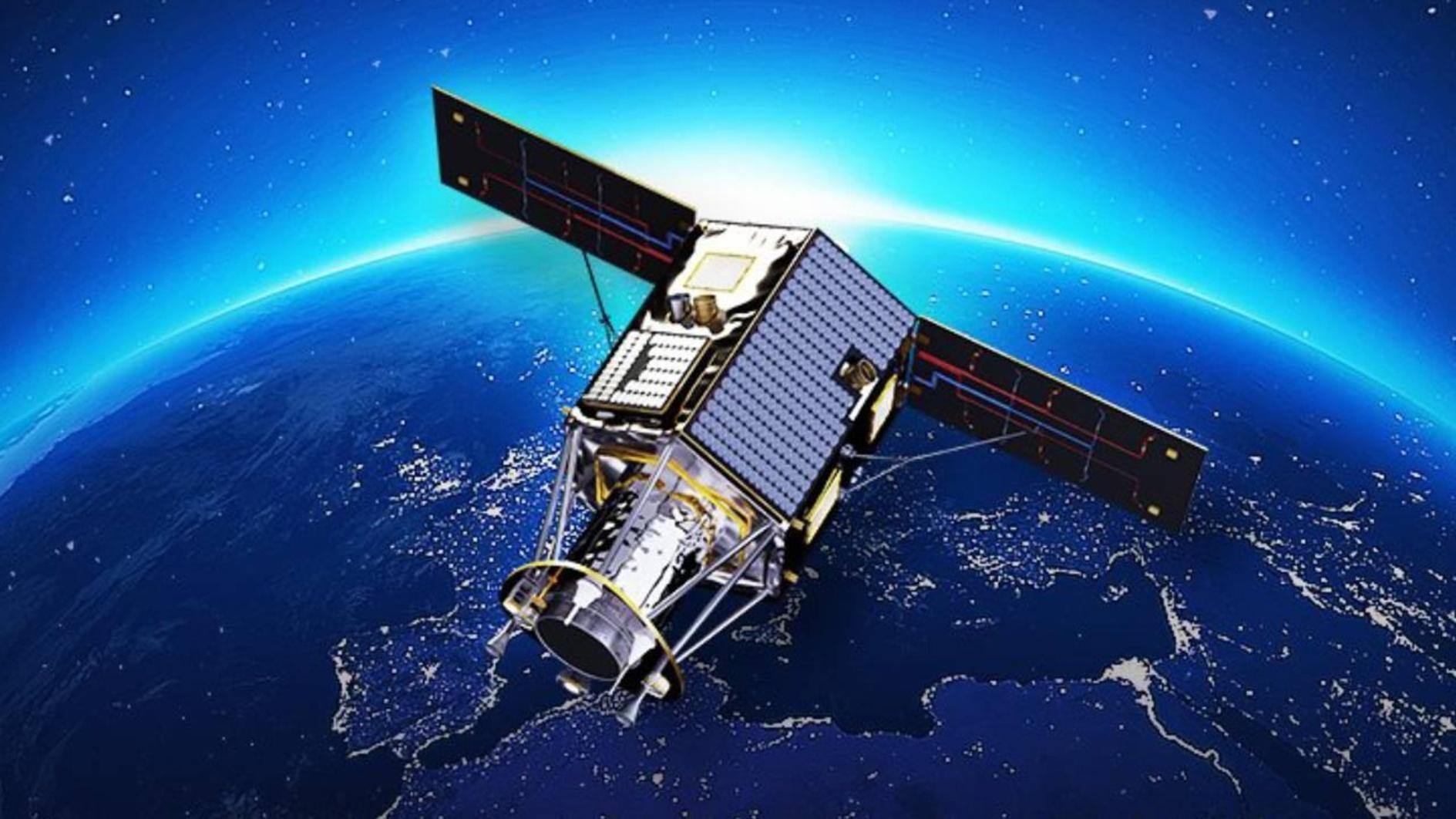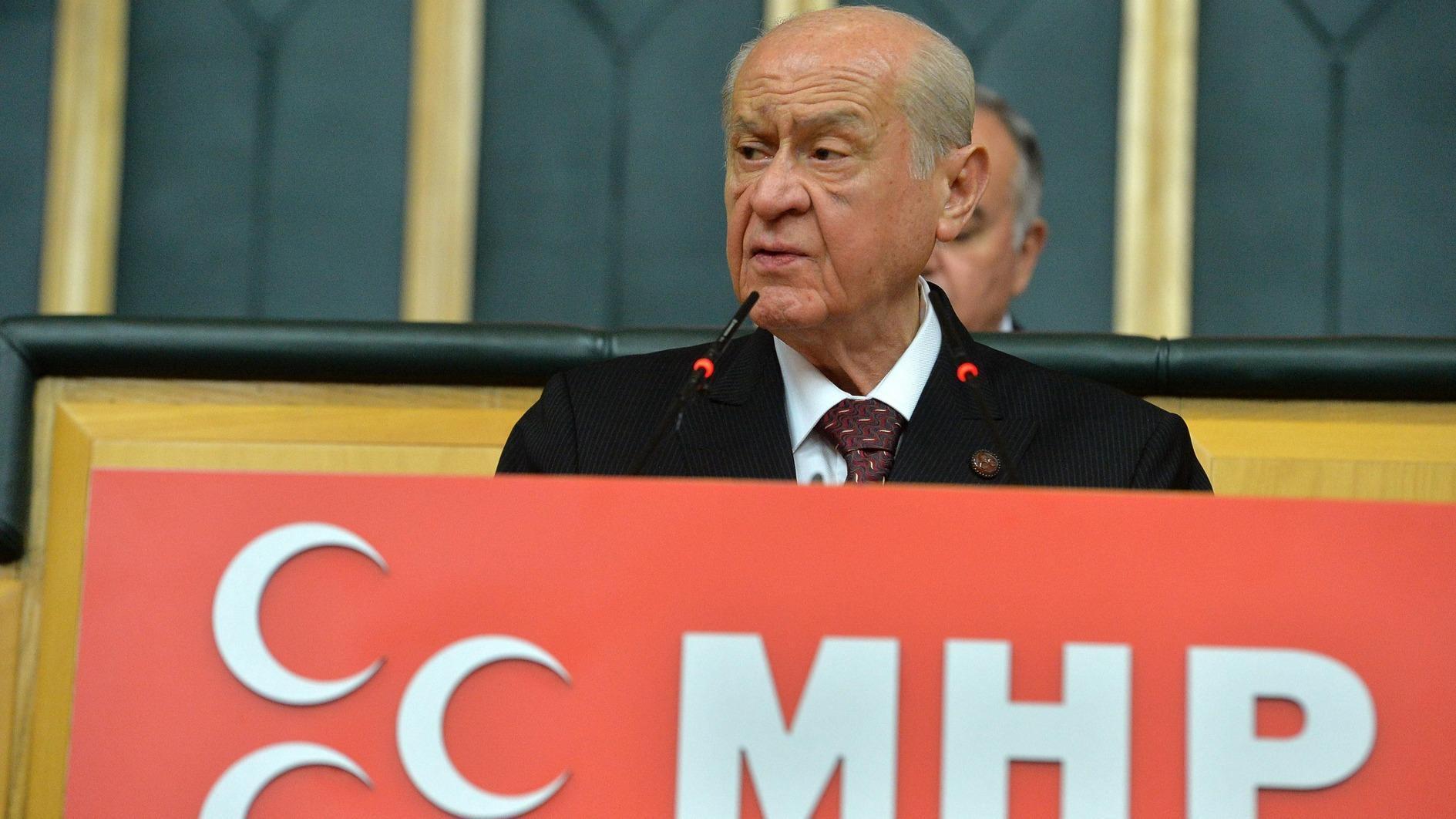Bodies leave Ukraine war zone as parties declare truce at MH17 crash site
TOREZ - Agence France-Presse
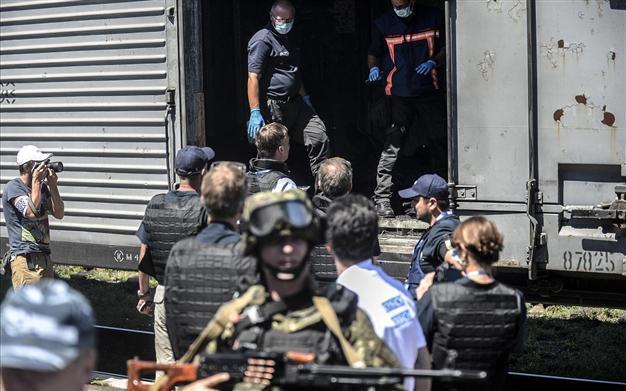
Monitors from the Organization for Security and Cooperation in Europe examine wagons at a railway station in the eastern Ukrainian town of Torez on July 21. AFP Photo / Bülent Kılıç
A train carrying the remains of 280 people killed in the Malaysian plane disaster was finally allowed to leave a rebel-held region in eastern Ukraine as the militants declared a truce July 22 around the crash site.Five days after Malaysia Airlines flight MH17 was allegedly shot out of the sky, pro-Russian separatists conceded to a furious international clamour for the bodies and the plane's black boxes to be handed over to investigators.
The devices, which record cockpit activity and flight data, were handed to Malaysian officials by the prime minister of the self-proclaimed Donetsk People's Republic, Alexander Borodai, in front of scores of journalists.
"We will order a ceasefire in an area of 10 kilometres around" the site of the disaster, which killed all 298 people on board the plane, he said.
Meanwhile, after days of bitter wrangling, the rebels released the bodies of the dead. Loaded on a train, they will arrive in the government-controlled city of Kharkiv July 22 before being put on a plane to the Netherlands, where the flight to Kuala Lumpur originated and which suffered the greatest loss, with 193 citizens killed in the crash.
The rebel concessions came after U.S. President Barack Obama insisted that Moscow force the insurgents it is accused of backing to cooperate with an international probe into the disaster.
Moscow, which has drawn ire for failing to rein in the rebels, backed a U.N. Security Council resolution condemning the downing of the plane and demanding access to the crash site.
A senior Russian defense ministry official insisted that "Russia did not give the rebels Buk missile systems or any other kinds of weapons or military hardware."
Black boxes 'intact'
Malaysia Airlines, reeling from its second disaster in only four months after flight MH370 went missing in the Indian Ocean, had to defend itself late July 21 after confirming it had diverted a flight from Ukrainian to Syrian airspace. "The Syrian airspace was not subject to restrictions," the flag carrier said in a statement.
Malaysian experts on the ground in Ukraine said the black boxes were "intact with only minor damage." "We have not found the black boxes from flight MH370, so (we) are happy to be able to recover these," said a member of the Malaysian team.
On the ground, the animosity between Ukraine's warring sides was underlined by intense shelling which erupted in the rebel stronghold of Donetsk, killing five and leaving 12 wounded.
Obama put the onus to set the situation straight squarely on Russia, which he said has "direct influence over these separatists."
Russian President Vladimir Putin must prove "that he supports a full and fair investigation," Obama said. The U.S. president stressed that "the burden now is on Russia to insist that the separatists stop tampering with evidence, grant investigators who are already on the ground immediate, full, and unimpeded access to the crash site."
An under-fire Moscow hit back, saying records showed a Ukrainian military plane was flying just three to five kilometres from the Boeing 777 before it crashed on July 17.
"With what aim was a military plane flying along a civilian aviation route practically at the same time and at the same flight level as a passenger liner?" asked Lieutenant-General Andrei Kartopolov.
Ukraine's President Petro Poroshenko swiftly dismissed that claim, calling it an "irresponsible and false statement" by Russia. Russia's riposte came after Kiev released fresh recordings of what it said were intercepted conversations between rebels conspiring to hide the flight's black boxes from international monitors.
And the U.S. embassy confirmed as authentic recordings released earlier by Kiev of an intercepted call between an insurgent commander and a Russian intelligence officer as they realised they had shot down a passenger jet.
The Washington Post said Ukraine's counterintelligence chief had photographs and other evidence that three Buk M-1 anti-aircraft missile systems moved from rebel-held territory into Russia less than 12 hours after the crash.
Earlier, at the Torez railway station, Dutch investigators wearing masks and headlights were finally allowed to examine the remains of over 200 recovered bodies.
As they opened each of the train wagons holding the remains, an overpowering stench filled the air. Patience was wearing thin over the limited access to the crash site in Grabove, but Malaysia's premier said late Monday rebels have now agreed to give investigators full freedom to examine the scene.
Netherlands opens probe
As grief turned to anger, the public prosecutor's office in the Netherlands said it had opened a criminal probe into the downing of the plane.
The outrage was palpable in an open letter from Dutch national Hans de Borst, who lost his 17-year-old daughter Elsemiek.
"Thank you very much Mr Putin, separatist leaders or the Ukrainian government, for murdering my dear and only child," he wrote in the letter published by Dutch media.
"I hope that you're proud to have destroyed her young life and that you can look yourself in the mirror." After meeting bereaved families, an emotional Dutch King Willem-Alexander said the disaster has left "a deep wound in our society".
Europe brandished the threat of new sanctions against Russia barely a week after the last round of toughened embargoes.
Whole sectors of the economy including goods with possible military uses could be targeted, British Prime Minister David Cameron said, while Canada announced new sanctions on July 21.
The separatists' violent bid to join Russia is the latest chapter in a prolonged crisis sparked by Kiev's desire for closer ties with the EU - a sentiment many in the Russian-speaking east do not share.


